A Hotbed Of Cancer Research
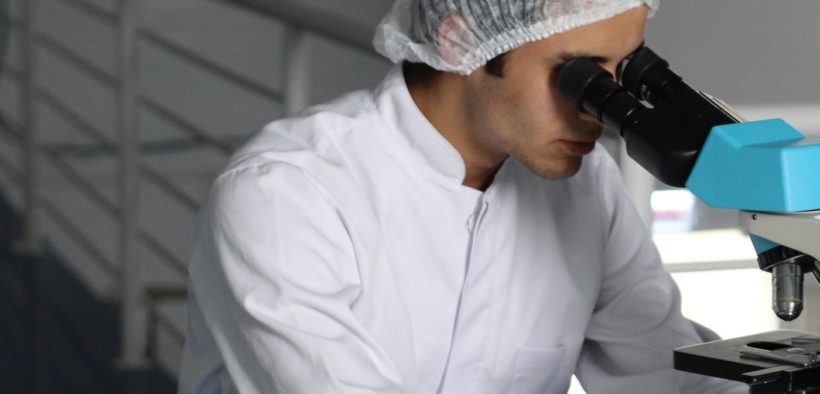
With new amendments in the regulations governing clinical trials and anti-cancer drug research in India, the future augurs well. With some more judicious steps by the government, India has the potential to lead global healthcare solutions.
BY ASIYA NAYEEM & AATIKA H JAIN
Cancer may be a scary term for many, but there are researchers and innovators aplenty worldwide working hard to ensure that it is no longer the specter it once was. Through new discoveries and treatment methods, scientists are working towards early and better screening and diagnosis, as well as the ultimate goal: a cure for cancer. India too is a major player in both clinical and pharmaceutical research in the oncology field, with the financial capacity and human development indicator of each state being taken into account to gauge their competence for research support and in providing training, patient care, and nursing.
These are important factors that guide the formation of public policies in line with the national cancer research agenda. Clinical cancer research in India is mostly restricted to tertiary cancer care centers and biomedical institutes, in contrast to developed countries where secondary care centers are also a part of the research network. The shortage of staff and lack of facilities beyond the tertiary centers present serious research infrastructural problems.
The increasing cancer burden of India exhausts the dedicated research time that can be put in by clinical staff. A case in point is the National Cancer Registry Programme (NCRP) formed in 1981 by the Indian Council of Medical Research (ICMR), which has 23 registries across the country. It has to cater to the Atlas of Cancer in India, various global studies, and the five-yearly monograph series spearheaded by the International Agency for the Research on Cancer: Cancer Incidence in Five Continents. “Dedicated cancer research department and teams need to be established with adequate funding,” says Dr. Harsha Doddihal, Medical Director-Oncology at IQVIA, formerly Quintiles IMS Holdings, Inc., a US-based contract research organization with offices across India.
Despite these logistical and time crunches, a lot of cancer research has been conducted in India. Research publications in India went up from 300 papers a year in 1990 to nearly 1,500 in 2010, of which almost 67 percent were headed by researchers based in the country. India’s cancer research output rose from 1% of the world total to around 2% during the same period, while the number of review articles by Indian researchers grew from 2% to more than 8%. These figures evidently show that Indian cancer researchers are slowly working their way up the ladder. This can be seen by the rise in the global collaboration in Indian cancer research outputs from 5% in 1990-94, to 9.6% 2000-04 and 11% in 2010.
Another noteworthy statistic would be the fact that studies on chemotherapy and cancer genetics make up for 30% of cancer research output in India. Surgical oncology claims only 9%, though it is the chief method of treating cancer and radiotherapy around 4%. Research in the field of palliative care remains grossly inadequate. Palliative care departments need to be set up with extensive research and service facilities. The focus should be on clinical research in palliative care, collaborating resources in researches and standardizing protocols. The government and NGOs should come together to promote cancer palliative care, both in terms of services and research, setting up funding patterns for the same.
Only 7 oncology drugs introduced in India in 2010-14; 50 therapies introduced worldwide.
India also needs to improve its capacity in radiotherapy, cancer in children, surgery, services and outcomes research. More than 44% of research studies in India get funding from various government sources. “The government must make it mandatory for all central government as well as regional cancer centers to have 20% of their patients participate in clinical research,” suggests Dr. Doddihal. “Hospitals that claim a tax rebate for research must be audited to ensure that they actually conduct research. Incentives must be provided to private corporate hospitals for participating in and contributing to clinical research.”

It is crucial to focus on improving cancer research across the country when drafting policies as cancer research and patient-centered outcomes are correlated. Measures need to be taken to involve every state and improve research outputs. There has been little or no collaboration between states actively engaged in cancer research. There is a lack of a funding system for both domestic and international collaboration. The increasing cancer care burden of the clinical staff, particularly of the regional centers, need to be addressed to permit them time for research.
The research outcomes need to be translated into quick implementation when it comes to patient care and cancer control. Another move that would benefit this sector is conducting more clinical trials and research training courses, besides bettering and creating more research infrastructure at regional cancer care centers and major academic institutes. There is a need to bridge the existing gap between cancer research, its existing infrastructure, and India’s cancer burden. The policymakers need to remember that cancer research and development is imperative to national cancer control programmes.
Clinical trials in India: hits and misses
Cancer incidence has increased multifold in the past few decades. In 2016, around 3.9 million cancer cases were reported, says the NCRP. By 2020, new cases are predicted to rise to 1.73 million in the country, leading to more than 0.88 million cancer deaths, according to the Indian Council of Medical Research. With 16% of the world population at 1.3 billion and 20% of disease burden, India sorely lags behind with less than 1.4% of global clinical trials happening in the country. The overall clinical trial scenario is quite poor, according to Dr. Randeep Singh, medical oncologist with Artemis Hospitals, Gurugram. “As compared to the global scenario, very few Indian patients are enrolled in landmark trials and thus we, both the oncologist and the patient suffering from cancer, lose out on this vital opportunity,” he says. Clinical trials are important for the improvement of evidence-based medical practice. They could immensely benefit patients in India, a country with a large population and an increased cancer incidence with huge unfulfilled medical requirements. Despite the availability of qualified and experienced medical personnel, suitable clinical trial locations, cancer registries, and databases, a higher number of available volunteers (almost seven times in comparison to the US), the number of ongoing clinical trials in India is still insufficient when compared to its cancer burden.

pedaling forward thanks to highly-skilled
Indian researchers who have been motivated
to join the field after scholarships and
thanks to intense encouragement by
influential people around them.
“It is a known fact that for certain types of cancers, the gene mutation types of Indian patients may be different from those in other countries,” says Dr Chirag Trivedi, President of Indian Society for Clinical Research (ISCR). “Thus, it is important to have more clinical trials for cancer done in India to address the India-specific unmet medical needs of our patients. More research needs to be done for diseases endemic to India. We need to encourage local innovation and research so that ‘Make in India’ becomes a reality for clinical research as well.” In 2016, the global clinical trial market was estimated at $40 billion and predicted to grow at a CAGR of 5.7% According to ClinicalTrials.gov, the total number of global clinical trials rose drastically from 5,628 in 2000 to more than 2,77, 228 in 2018. Out of these, only 3,418 studies were registered from India leaving it behind the US, Europe, Japan, Taiwan, and China. Currently, 667 trials are on in India, of which 121 are oncology trials; 71 of these are industry-sponsored oncology trials. The numbers dropped from more than 500 clinical trials in 2010 to less than 200 a year in the next years.
In January 2013, stringent changes in compensation guidelines and researcher accountability were announced, which adversely affected the clinical trial industry in the country. The year saw only 17 global trials being approved to be carried out in India. In 2014, after a spate of public interest litigations against volunteer deaths and severe outcomes in clinical trials by pharmaceutical companies during 2005-2012, the Supreme Court completely stopped the approval of any clinical trials in India. However, with recent amendments in the regulations by the Central Drugs Standard Control Organisation (CDSCO), the number of clinical trials in the country is expected to rise in 2018-19. After the challenging period for clinical trials in India, it will take time to rebuild a conducive environment, says Dr. Trivedi. “Currently we do less than 1.3% of global clinical trials in India although the burden of our diseases is growing and we are seeing newer strains of existing diseases as well as new disease profiles emerging. So while the current situation is not ideal, we hope it will improve so that patients can ultimately benefit,” he says. A three-tier review procedure has been introduced to speed up the approval process in which the clinical trials will now be first approved by the “subject expert committee” (SEC), 29 of which are operational, then by the technical committee and lastly by the apex committee.
“HOSPITALS THAT CLAIM A TAX REBATE FOR RESEARCH MUST BE AUDITED TO ENSURE THAT THEY ACTUALLY CONDUCT RESEARCH. INCENTIVES MUST BE PROVIDED TO PRIVATE CORPORATE HOSPITALS FOR PARTICIPATING IN AND CONTRIBUTING TO CLINICAL RESEARCH.”
Dr Harsha Doddihal Medical Director-Oncology, IQVIA
This is supposed to speed up the approval process by the Drug Controller General of India (DCGI). Earlier, it used to take more than six months for approval, resulting in the clinical trial losing its relevance for it would be conducted elsewhere in the world in the meantime. Recently, simplifying the process further, it has been decided that applications for global clinical trials need to be approved only by SEC and won’t require technical or apex Committee approvals. In the case of SEC rejecting the application or CDSCO not concurring with the SEC reviews, it can be presented to the technical committee for the final verdict. The clinical trials can be submitted online on SUGAM now, which will also store the data of the clinical trial applications. This will facilitate future references in case the sponsors/ researchers file application to market their new product in India. Registered Institutional Ethics Committees (IEC) have been made mandatory for all institutions to carry out or supervise clinical trials. The main task of the ethics committees in India is to recommend the compensation in case of clinical trials related injury. India has now implemented a formula for the calculation of the compensation. The mandatory audio-visual consent has also been relaxed and now needs to be done only in the case of vulnerable volunteers. To promote investigator-initiated studies (IIS), IEC approval would suffice in case of studies on a “new”/ “off-label” indication for a marketed drug. The mandatory requirement of a minimum 50-bed hospital to conduct clinical trials has been done away with. The limitation on the number of clinical researches an investigator can conduct has been removed and the limit is now at the discretion of the corresponding EC.
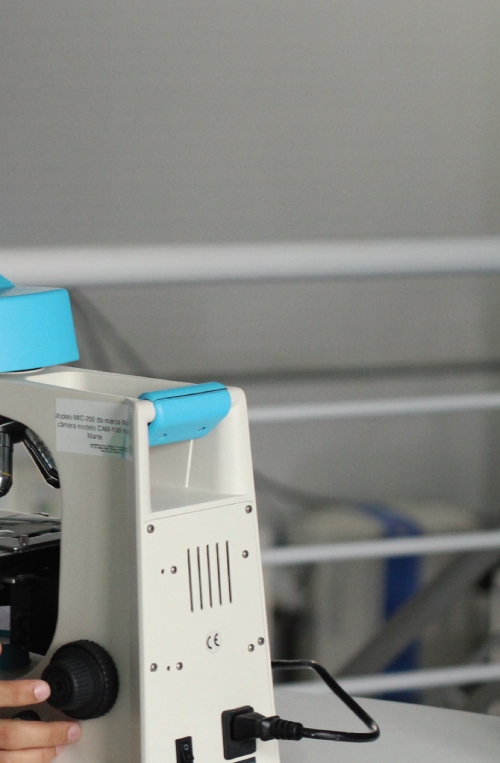
Despite new regulations in place to safeguard the patients’ rights, disturbing incidences of unethical human clinical trial practices have come to light recently from the states of Telangana and Rajasthan. In rural areas rife with unemployment and poverty, healthy people are recruited with the promise of quick money to test new drugs by clinical research organizations (CROs) and hospitals. These volunteers repeatedly enroll in different trials, many times without a stipulated gap of three months in between two trials, lie about their age and health history, and consume alcohol during the course of the trial. This ends up in not only posing danger to volunteers’ health but also misrepresented clinical trial data. To tackle this problem, India needs to build a national registry of volunteers similar to France and the UK.
Under the Drugs and Cosmetics Act 1940, which govern clinical trials in India, only the Centre can investigate the cases of violations and the local police can’t make any arrests in such cases. While the CROs claim that they follow all the guidelines to ensure approval from the government agencies, the ground reality differs widely. In many cases, the CROs are unable to catch the deception of willing volunteers looking for quick money. The amendments made in the regulations for clinical trials and the SC-laid guidelines emphasize on the compensation for the patient in case of trial-related injury. It is entirely the discretion of the EC whether any compensation is paid.
“WHEN I TAKE A STEP BACK AND LOOK ACROSS AND BACK THROUGH MY OWN CAREER, THE THING THAT IS MAKING THE MOST DIFFERENCE TO CANCER PATIENTS, INCREASING THE CURE RATE, DECREASING THE DEATH RATE AND IMPROVING PATIENT’S QUANTITY AND QUALITY OF LIFE IS BETTER DRUGS TO MANAGE MALIGNANCIES”
Dr Justin Stebbing Prof. of Cancer Medicine and Oncology from Imperial College in London
Currently, 667 clinical trials are on in India, of which 121 are oncology trials; 71 of these are industry-sponsored oncology trials
In the unethical incidences which have been brought to light, the volunteers not only enrolled on their free will, they signed the Informed Consent Form too, possibly without understanding the full implications of the trial. It is completely up to their family to approach the CROs in case of injury or death of the volunteer. They can move the court only if the CROs don’t pay any compensation. In most cases, the families of the volunteers aren’t even aware of their participation in the clinical trials nor are they aware of their rights. These unethical practices can only be prevented by spreading awareness among the general public through social outreach programs. The onus lies on the ECs as CROs face a conflict of interest while signing up volunteers for clinical studies as their revenue generation depends on it. The ECS must consistently and vigilantly monitor the studies, particularly where vulnerable subjects are involved.

Applications for clinical trials can be submitted online on SUGAM, the portal of the Central Drugs Standard Control Organisation.
“Our regulations need to be further tailored to the phases of a study. We need to invest in more education and awareness amongst doctors, nurses, and patients. If they understand the ethical as well as the scientific considerations of clinical research, adherence to regulations will be better,” says Dr. Doddihal. “We need more patient education so that patients are aware of the role of clinical trials, and the rights and responsibilities of those who participate in a trial.” This February, a proposal by the Union Health Ministry contained a provision regarding the compensation to a volunteer in case of death. The provision states that 60% of the stipulated compensation should be paid within 15 days of death if a volunteer dies or suffers a serious injury during the trial. In case it is proved that the death or the injury was not a result of the trial, the interim compensation would not be refunded. This has invited a warning from the World Health Organisation (WHO) stating that the work done by United Nation agencies in India would be hindered if the severe compensation rules in case of volunteer death or injury are implemented. Foreign drug companies would also look elsewhere for clinical trials. This places the government in a quandary. Most ECs in the country might not be efficiently trained to review the issues of compensation. The compensation clause clearly requires reform. It is necessary to find a middle ground that protects the volunteers’ rights while considering the stakeholders too. “We need to ensure a balanced compensation system which is rational, fair and scientific. One cannot be penalized for doing clinical research with sick patients who do not have any standard of care,” states Dr. Doddihal.
Future of clinical trials in India
It is important to create an encouraging environment for clinical trials in India in view of its increasing cancer burden. It is the patients who ultimately lose out whose last hope of survival or a better quality of life might be participating in clinical trials, says Dr. Trivedi. Specialists represent an important part of the participation of cancer patients in these clinical trials as they are the first to point of contact for the patients. Patients have implicit faith in their doctors’ advice too. Doctors could provide relevant information to their patients regarding ongoing clinical trials and help them make informed decisions. “We do enroll and encourage patients to enroll in clinical trials. A few examples are lung cancer patients who are KRAS-positive to be on RAS inhibitor, Palbociclib trial in pre-surgery settings (in case of ER-positive and HER2 negative breast cancer),” says Dr. Singh.
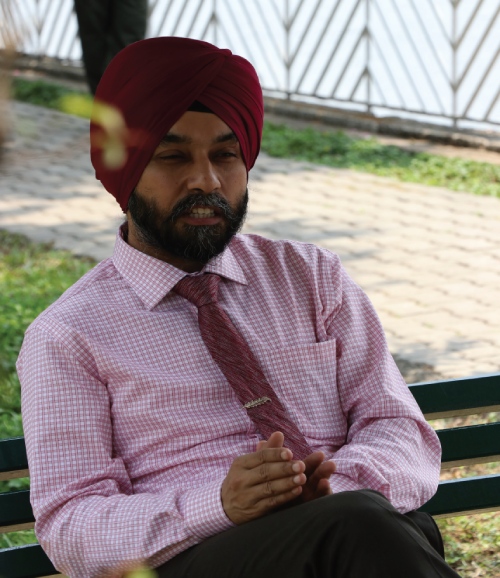
“A patient and caregiver-friendly website or an app with details of ongoing studies, indications, sites, etc. would be of immense help. As of today, it is difficult to find the right information on CTRI. Medical, pharmacy and science colleges, government and private hospitals should have kiosks where information about clinical research is made available,” suggests Dr. Doddihal. Clinical research and trials in India have been a controversial topic for some time now. “While we do not condone any irregularities in the conduct of clinical research which are really the exception than the norm, we must acknowledge that there are several hundreds of high-quality clinical trials taking place in the country in compliance with international and local guidelines,” states Dr. Trivedi. “There have been over 55 USFDA clinical trial inspections done in India between 2008 and 2018, with minimal critical findings reported. There have also been several European regulatory audits of Indian clinical trial sites, again with no critical findings. Global studies have also shown that there is no difference in the quality of data across regions, including India.”
“AS COMPARED TO THE GLOBAL SCENARIO, VERY FEW INDIAN PATIENTS ARE ENROLLED IN LANDMARK TRIALS AND THUS WE, BOTH THE ONCOLOGIST AND THE PATIENT SUFFERING FROM CANCER, LOSE OUT ON THIS VITAL OPPORTUNITY.”
Dr Randeep Singh Head of Oncology, Artemis Hospital, Gurgaon
Creating a favorable environment for clinical trials and research in India is going to be challenging and slow but it is vital in dealing with the country’s increasing disease burden. “It requires concerted and collaborative effort on several fronts: a stable regulatory environment based on a scientific and rational premise, better governance by the regulators regarding the conduct of clinical trials, capacity building across the stakeholder spectrum (including Ethics Committees, Investigators, etc.) and finally more awareness and education so that there are public confidence and trust in clinical trials,” says Dr Trivedi. Clinical research and trials are critical to the drug development cycle. Clearly, most innovations in the oncology research department come from new drugs that are developed for better outcomes. One research predicted that according to the current spending trends, worldwide spending on cancer medicines by 2020 will exceed $150 billion. This is also based on the fact that many pharma groups globally are constantly evolving existing drugs and making better and ultimately, more expensive medicines to tackle the pressing number of cancer cases, which are also going up in numbers. The cancer industry pockets a large chunk of healthcare costs globally and as with any commercialized industry, it seems like the countries leading in cancer research and drug development are the ones that will emerge with the most profits.
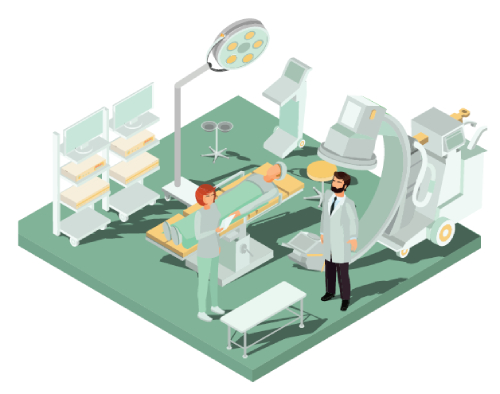
Institutional Ethics Committees (IECs) mandatory for institutions to carry out or supervise clinical trials.
“When I take a step back and look across and back through my own career, the thing that is making the most difference to cancer patients, increasing the cure rate, decreasing the death rate and improving patient’s quantity and quality of life is better drugs to manage malignancies,” says Dr. Justin Stebbing, Prof. of Cancer Medicine and Oncology from Imperial College in London. “Even if we can’t cure people, we can turn it into a long-term disease like diabetes that people can live with for years with good quality of life as well.”
Drug research: India’s standing
Does India’s pharmaceutical research landscape earn a percentage from that large profit? Unfortunately, no. The country falls far behind in this specific department. In the grand scheme of this churning machine, India is a bigger player as a manufacturer than as a contributor to anticancer drug research and development. This poses a problem because then, India depends on other countries for the latest drugs to advance their current cancer treatment methods. With international taxes, this also means cancer treatment becomes more expensive. One major roadblock that the country faces is the lack of financial funding that the pharmaceutical companies are in dire need of. The biggest stakeholders in the research for new anticancer drugs are the United States and China, two countries that put a high priority on funding the research centers across their nations.
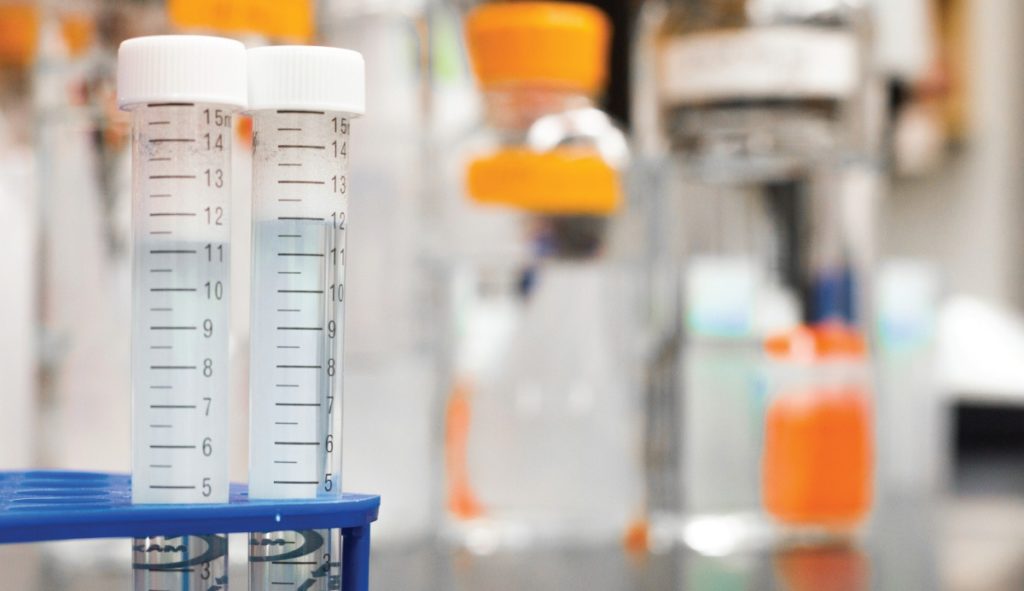
Their governments are particular about advancing the treatments and current research findings and they do this by providing grants and encouraging more of their youth to move into research. While India does possess some of the finest oncologists, the research labs are not as crowded as the hospitals. The lack of funding also hurts the research centers in India, which have only half the funding as compared to similar centers in the US and China. But it seems like India is the one that needs to commit most of its resources towards cancer research and treatment. Every year, 1.5 million people are diagnosed and a double of that number is seen living with cancer without any medical attention. Due to the Indian government’s much-supported initiatives like the Tata Memorial Online Oncology Tutorials, awareness is slowly being built. What remains is to increase more inflow of funds, resources, and manpower within the research and development of oncology drugs to ensure the country’s fast tracks towards better facilities for cancer care.
Small Beginnings
India has come to terms with the fact that, as the disease becomes a larger issue and as the cases snowball, the country will need to come to the forefront of cancer research, development, and treatment or it could risk falling off the wagon entirely. Having anti-cancer drugs originating in India is an advantage for both manufacturers and patients alike. The manufacturers get to reap profits and enter an international market and the patients get access to medication that is affordable. But this means starting from scratch, not taking the makeup of an existing drug, but manufacturing a home-grown version of the same. For years, due to the lack of research opportunities in the country, India depended on China’s massive pharma research industry to stock up the large hospital medicine cabinets across the country. Under the rule of Narendra Modi, a new wave came about. Back in 2016, the finance ministry removed exemptions from 76 medicines being imported to India, including anti-cancer drugs. The hike in prices was an obvious disadvantage to the manufacturers and definitely a bigger problem for patients. But the lid on this import was a silent advantage to the healthcare system in India.

The move was the first step to making healthcare more accessible and affordable in India. Slowly, many pharmaceutical companies came out of their safety nets of catering solely generic drugs and widened their scope of work to include disease-specific research. Indian pharma has always restricted itself to generic drugs like paracetamol. Their research strategies haven’t aimed for ambitious and groundbreaking work yet. But the thoroughness of their work in pharma research has definitely paid off. Recently, a Chinese film revealed that many cancer patients in China depend on generic drugs imported from India, because of its affordability and effectiveness as compared to the Chinese counterparts of the medicines. This movie led to the decrease of tariff costs of the import of these drugs from India, a bonus for Indian pharma firms going international. But it also reflected one truth: India’s research hubs have immense potential for creating hard-hitting, effective drugs.
“India has become the pharma capital of the world and is helping many countries with affordable drugs and vaccines. Our industry should be positioned to take advantage of new technology and changing demographics,” said Union Minister of Commerce and Industry Suresh Prabhu recently. Another word of praise came from Sanjeev Gupta, Managing Director, Kusum Group of Companies: “There are mammoth opportunities in India. India is a good exporter of generic business and we have also taken a big jump recently. There are many people in small towns and villages who are not getting proper medicines. The government is trying to disentangle the concerns of these locations.” Back in 2009, one of the most prominent drug research hubs in India, Ranbaxy Laboratories recognized the crucial needs for better cancer-specific drugs and even as far back as 9 years ago, they worked holistically towards new drug discovery initiatives with four focal areas, one being cancer. Today, more centers are entering the market and working towards breakthroughs that they hope will change the current treatment methods and even increase India’s standing as a pharmaceutical giant on a global level.
The current scape of the Indian oncology drug development sector is unknown as all research hubs across the country naturally keep quiet about their progress. Small victories are definitely seeing light as things develop. One such victory is in the southern part of India where a company named Kerala State Drugs and Pharmaceuticals will soon export its drugs to African nations like Ghana, Kenya, and Zimbabwe. The company is state-run and has successfully received orders worth INR 40 crore for this fiscal year.
Kerala State Drugs and Pharmaceuticals will soon export its drugs to African nations like Ghana, Kenya, and Zimbabwe. The company is state-run and has successfully received orders worth INR 40 crore for this fiscal year.
Looking Ahead
India stands 10th in terms of pharmaceutical research, a fact that proves that the country is lagging but has definite potential to improve. This starts with government support. The industry will witness more funds coming into pharmaceutical pockets now that the government has allowed 100% FDI without prior permission. This will also ensure long-lasting patents and better technologies. Moreover, the government in itself plans to invest more in the pharma sector by 2020. Another support that the sector has gained from government bodies is the cutting of taxes for R&D expenses. This is a massive step in making research less difficult an aspect of the cancer industry to break into. “I think five years from now, there will be so many things in India which will be so much better. There will be much more access and availability to cancer treatments. At the same time, there will be many more trained oncologists. You already have fabulous doctors here but at the end of the day there is only 1 doctor per 1,500 patients diagnosed with cancer in India whereas, in the west, there is 1 in 300 to 400,” observes Dr. Stebbing. The future of the onco-pharmaceutical requires a lot more people to move into the sector, especially individuals with expertise.
Most international pharma companies are pedaling forward thanks to highly-skilled Indian researchers who have been motivated to join the field after scholarships and thanks to intense encouragement by influential people around them. If India could replicate this process, the outcome could be close and while it isn’t a fast-paced result, it is bound to eventually, reap rewards. “By improving access to healthcare, by increasing awareness, education and screening, we can start to treat people with cancer where cancer doesn’t become a stigmatized condition and people are not scared of chemotherapy. They can understand that these drugs and these medical systems can treat them holistically looking after their psychological and nutritional well-being as well as physical well-being,” says Dr. Justin Stebbing after spending time working within this field in India. Cancer care in India needs to be taken more seriously than ever. With the right awareness strategies and a higher priority in cancer research, India can flourish and evolve its anti-cancer drug landscape.














